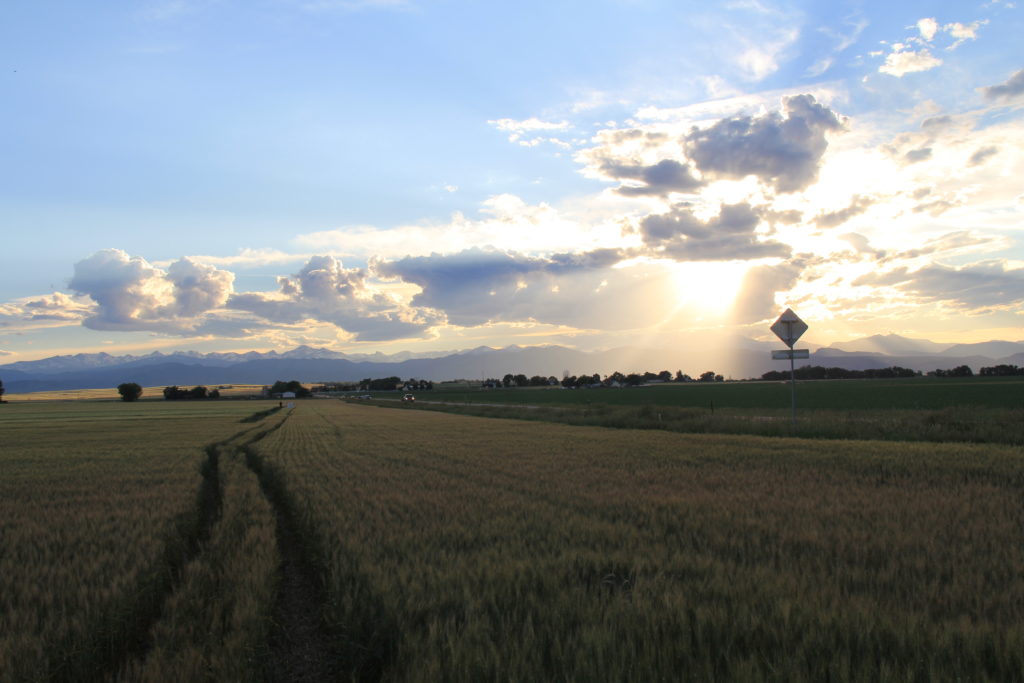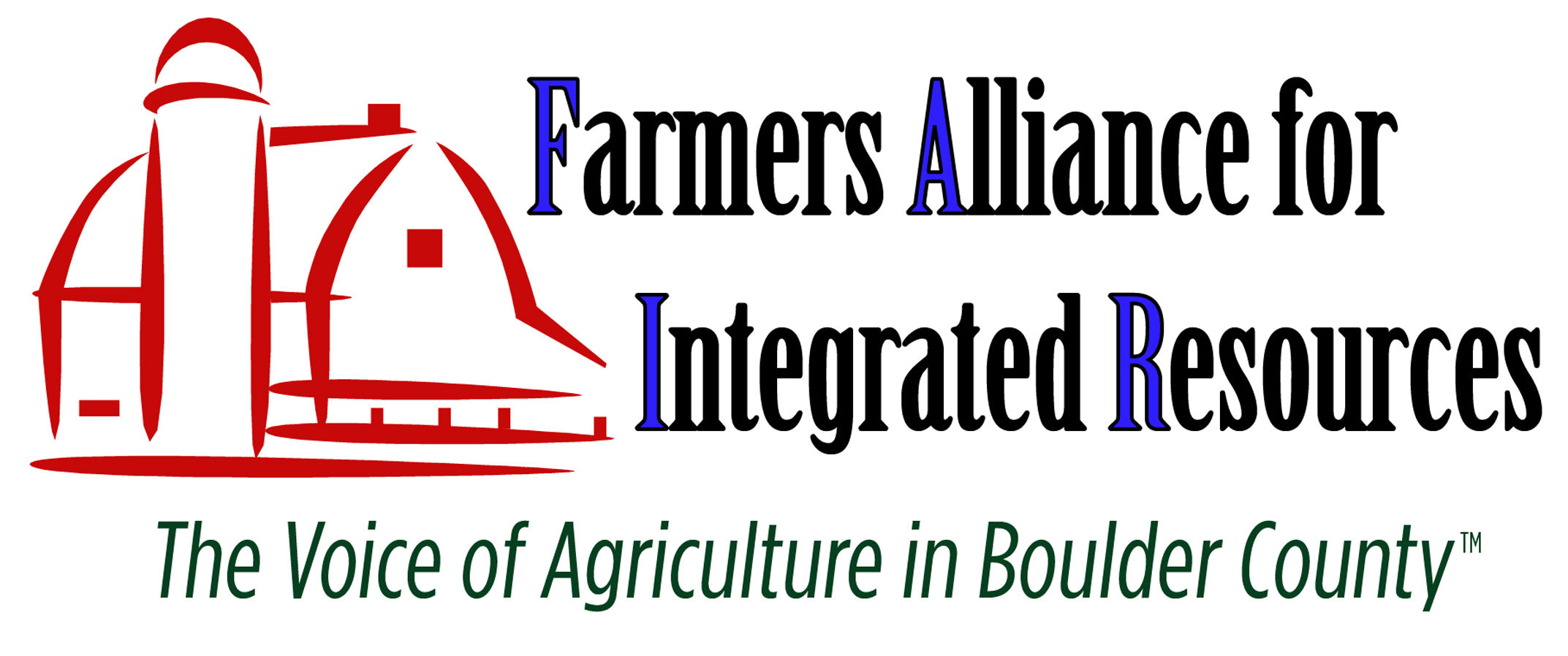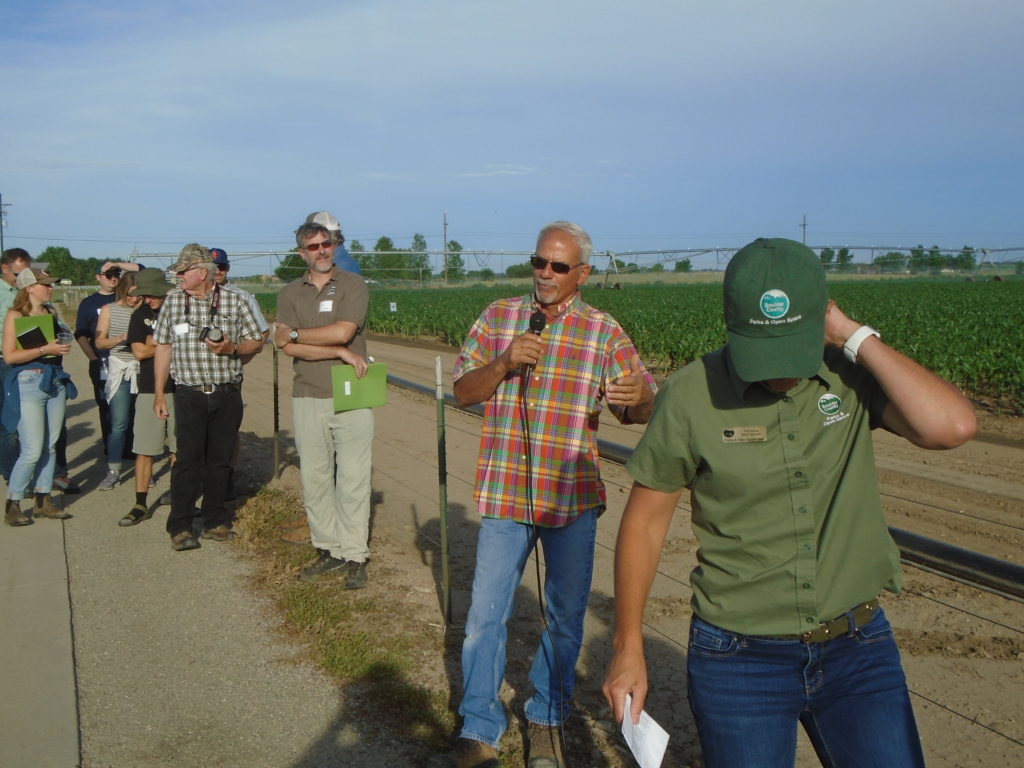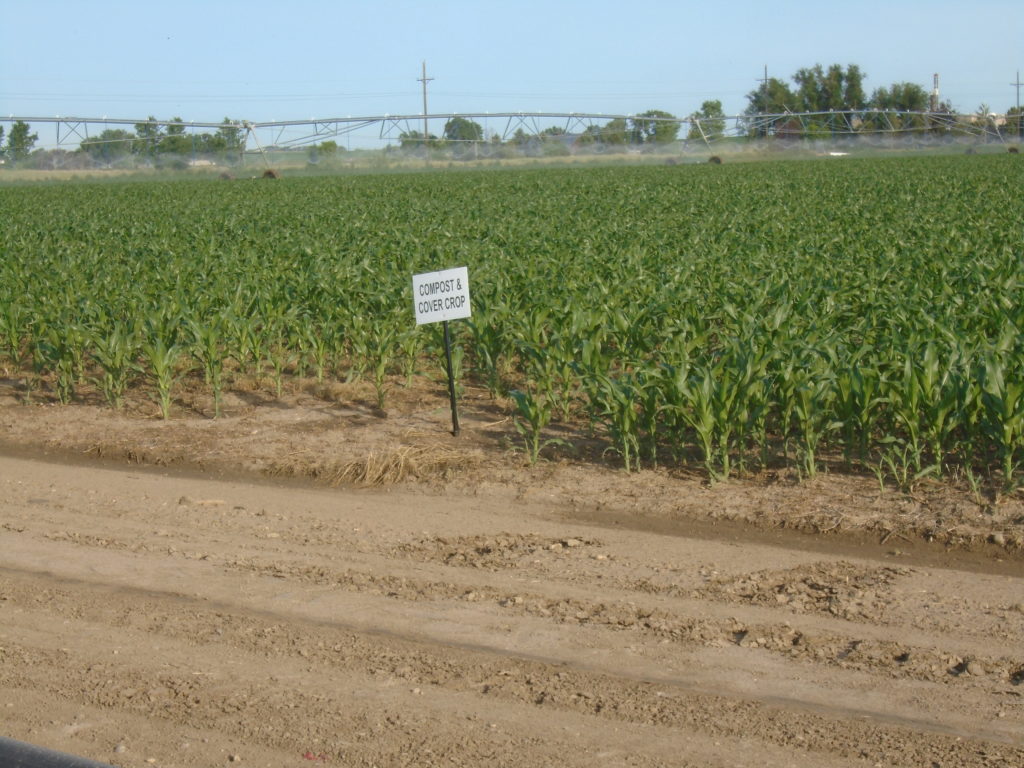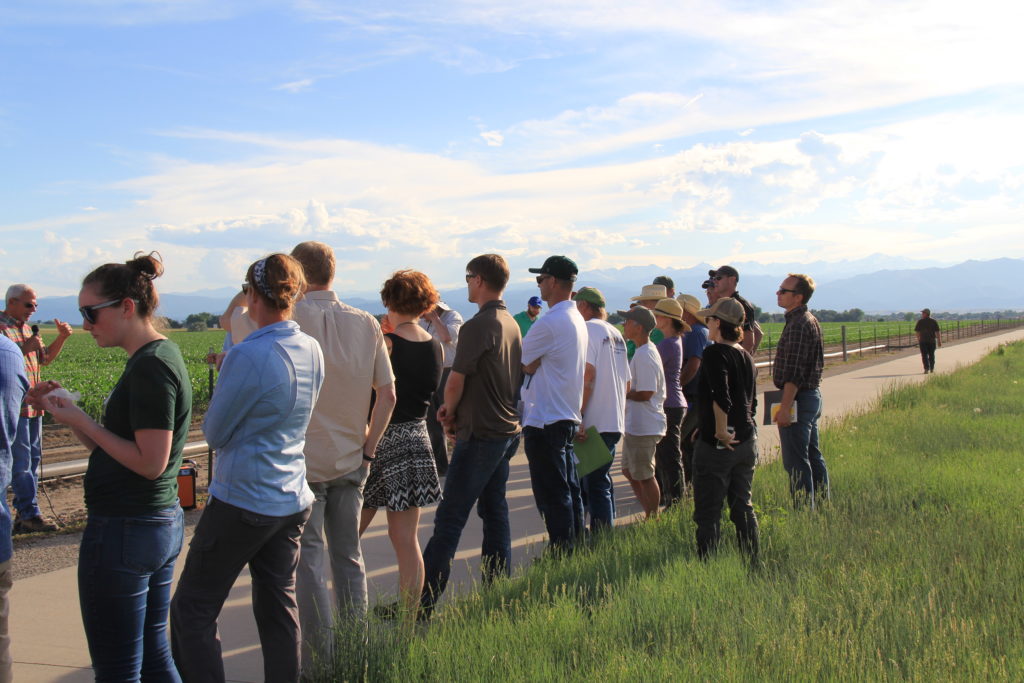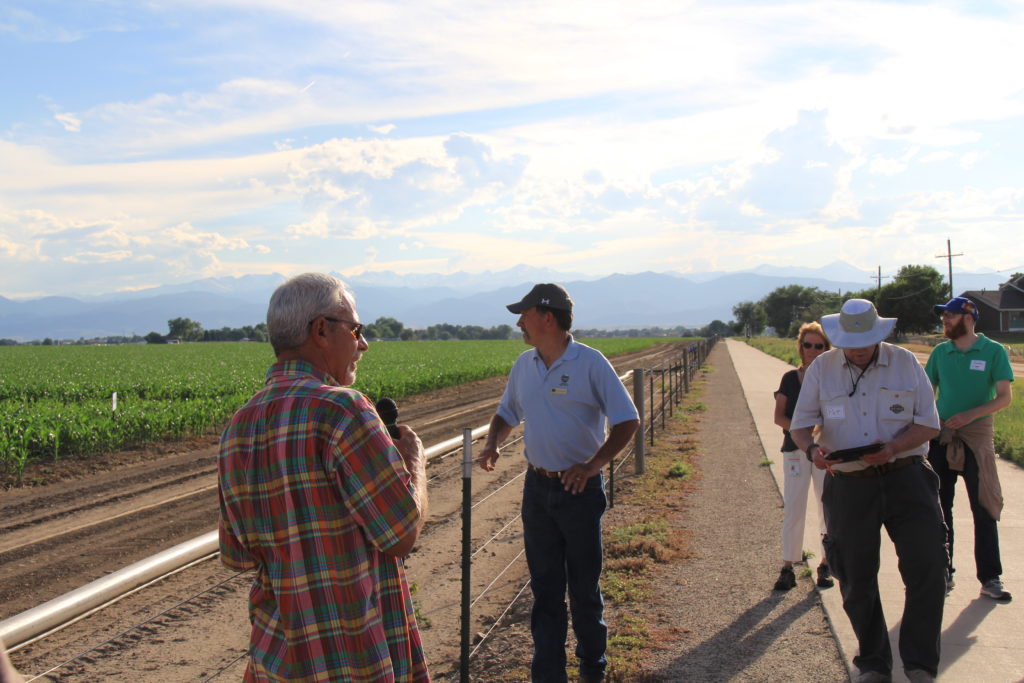Boulder County FAIR farmer Jules Van Thuyne manages the farmland on the Longmont United Hospital property. He helped to host a “Field Day” tour for Boulder County Parks and Open Space, which allowed citizens an up-close look at various agriculture innovation projects happening in the County.

Jules is running trials of winter cereal grains to explore the productivity and viability of new crops in Boulder County’s unique soil and climate. He provided information about the benefits and challenges of each of the crops he’s trialing.
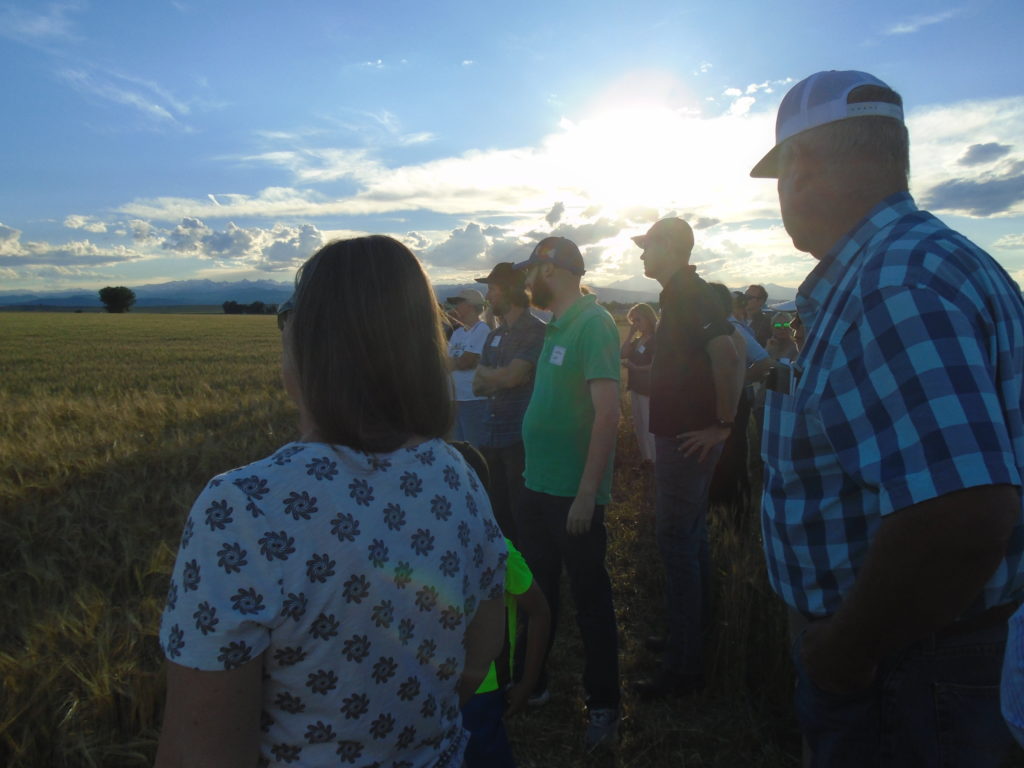
The winter wheat:
- Is planted in the fall (early October)
- Helps hold the soil
- Makes good use of natural moisture
- Improves timing of the farm operations (distributes labor and equipment use, cash flow, etc)
- Introduces a cool season grass
- Lower yield than winter malt barley
- Uses more water than winter malt barley
- The discussion did not include the challenges of finding markets for winter wheat, which is always an important part of crop sustainability.
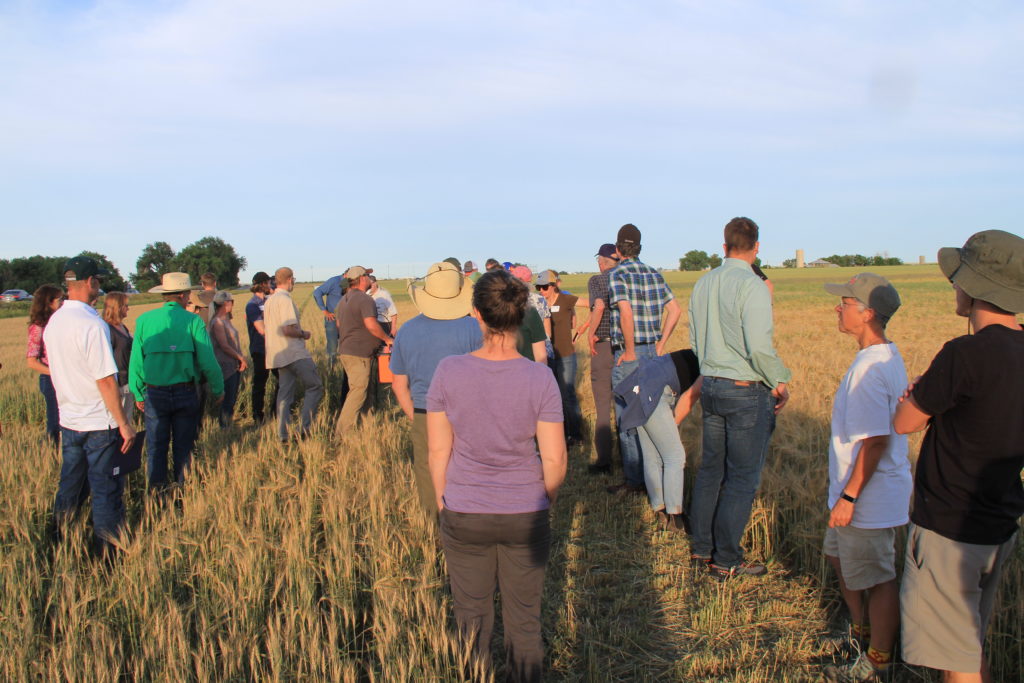
The winter malt barley:
- Is generally not as hardy as winter wheat
- Is not as strong as straw
- Earlier than winter wheat
- Higher yield than winter wheat
- Uses less water than winter wheat
- The discussion did not include the challenges of finding markets for winter malt barley, which is always an important part of crop sustainability.
